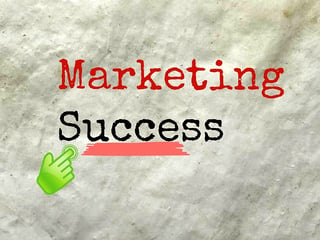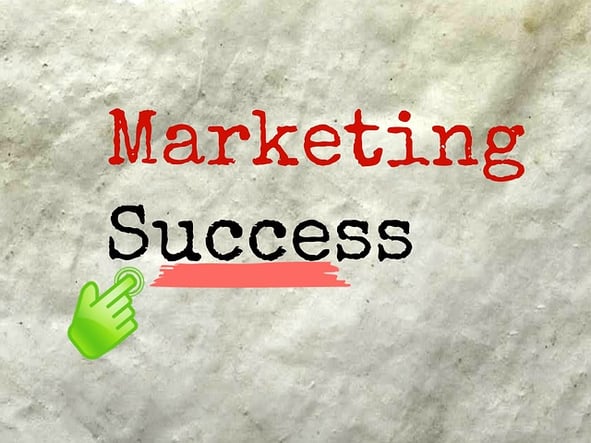

Inbound marketing is a term that is only recently making its way into everyday vernacular. It’s easy for industry insiders to assume that everyone just knows what inbound marketing is. Inbound marketing isn’t a complex concept, but putting into practice can take years to master. Interestingly, the concept of inbound marketing has only been around a short time, which means it’s still a somewhat blank slate. What’s best-practice today might not be tomorrow. The consensus is, though, that inbound marketing works on a level that traditional marketing could never attain.
The basic concept of inbound marketing is that potential customers come to you. There’s no cold calling, no billboards, no commercials, no print, it’s as simple as if a person is interested in a product they’ll come to you.
In theory, a computer, internet access and a website are all you need to practice inbound marketing. Of course, in theory, the roulette wheel can always land on red, common sense tells us that doesn’t happen.
The definition of inbound marketing, according to Wikipedia (the ultimate inbound site), is marketing activities that bring visitors in, rather than marketers having to go out to get prospects' attention. Inbound marketing earns the attention of customers, makes the company easy to be found, and draws customers to the website by producing interesting content.
How does inbound marketing earn the attention of customers? That’s the tricky part. Essentially there are four components that a company should concentrate on for a successful inbound campaign. They are blogging, SEO, social media, and email marketing.
Blogging
Blogging is omnipresent in inbound marketing. Blogging has something to do with every other facet in some capacity, which I’ll explain. But what is blogging? It wasn’t long ago that seemingly everyone had a personal blog, basically an online journal to share with friends and family, or if someone had interesting content maybe the world. While that form of blogging still exists, businesses have jumped on the bandwagon, and really overtaken personal blogging. A blog is a forum where a company can explain themselves. Who are they? What’s their culture like? What can they do for you? Are they a company you even want to do business with? All these things can be answered in a blog. A blog is an ad, not about products (although it can be) but about the company and/or industry itself.
There are a few important things to keep in mind when blogging:
Culture – A blog is a great way to give the world a glimpse into the company. The writing style of the blog will tell a lot about what kind of company you are. A conversational style of writing is indicative of a company easy to do business with. A more rigid writing style indicates that you’re a business to be taken seriously. If you allow everyone in your company to post it shows that you’re a transparent company. One thing to keep in mind, no matter your culture, grammar matters. The most insightful blog in the world in the world won’t be taken seriously if it’s pocked with errors.
Consistency – It’s easy to get too busy to blog. Unless your job is to exclusively write for one company’s blog, then you’re going to be too busy to write one day. Your blog is more of a detriment though if you don’t keep up with it. If people go to your blog and see that you haven’t posted in a month, they’re going to assume you aren’t a professional organization. It will also hurt your SEO rankings.
Professionalism – No matter your writing style, make sure that what you post is intelligent. Your blog should show that you are an industry leader. If you’re not, your blog is the perfect opportunity for you to become one.
SEO
Search Engine Optimization is both the most important part of inbound marketing and the most perplexing. SEO is simply getting ranked on search engines, mainly Google, who has almost a 70% market share. Ranking for the right keywords and using those keywords in content and metadata will help you get to the top of the search rankings.
Few people take the time to think about how many people search for so many different sets of words every minute. Choosing the right words and string of words is vital to finding not only leads but the right leads for your business.
Social Media
Social media is a great tool to both brand and communicate with leads. Social media was not designed as a business marketing tool but lends itself to that quite nicely. In fact, if done right, is an inexpensive way to market. LinkedIn, Facebook and Twitter all have easy ad placement too that allows you to choose the budget.
Social media can be a double-edged sword. Without even getting into the inherent dangers of being able to post anything in real time, it’s vital that you are consistent with posts in voice, messaging and shared content. In other words, it’s easy to just do social media, but without the right strategy you won’t be successful.
Email Marketing
Email marketing falls under the category of inbound marketing because the email list you send to is derived from the contacts that you’ve attracted through your other methods. Email marketing should be persona based, not spam. It’s unlikely that your entire database needs the same email. Email marketing can be the most powerful marketing tool you have available, but like everything else needs to be planned out and strategic.
When sending an email, make sure your subject line is inviting but short enough to fit on one line, no more than 50 characters. Write the content for the intended audience, don’t try to be comical if the content or the audience isn’t conducive for that.
Also, don’t send too many emails, people will correlate with spam if they see too much of it, no matter what.
While inbound marketing is a newer concept, still being refined, the goal is the same as with all marketing, to generate leads and customers. Each concept on its own is easily accomplished, the act of implementing them strategically, working with each other is how inbound marketing becomes a true lead generator. If you are able to master it, you will generate quality leads at a level you've never been able to before. Below is an infographic that shows how everything connects.
